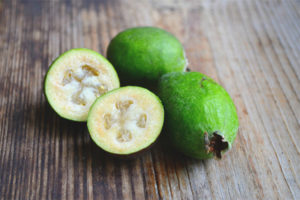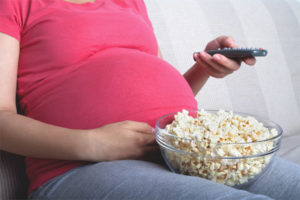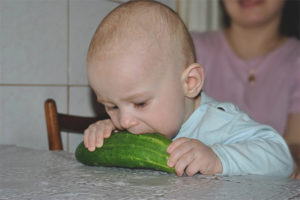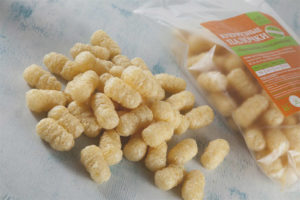The content of the article
Caesarean section is an operation that is quite complicated for the state of the mother's body. Not all doctors recommend its implementation due to the fact that a woman is 12 times more at risk than with natural delivery. After the operation, it is necessary to observe a number of certain rules, in particular, the nutrition of a newly minted mother should be under strict control. Consider which foods you can eat and which ones not, an approximate diet for mom and other important information.
General rules
For surgical intervention should be indications, consider the main ones:
- severe toxicosis;
- myopia in a neglected state;
- very narrow pelvis;
- diabetes;
- incorrect placement of the child;
- malformations of the uterus.
In some cases, you can agree on a planned caesarean section with a qualified doctor - but it is important to remember that in this case, the recovery period will take much longer and will be more difficult.
Much attention should be paid to the nutrition of women. It will significantly differ from the diet of a woman in labor, who gave birth on her own. This factor is directly related to the fact that with CS, surgery is performed, in which the organs begin to function in a different order. It is important to establish the work of the intestine - and this can be achieved not only thanks to an established diet, but also activity. Experts say that after a couple of hours, a woman in labor should begin to make turns in bed, and 5-6 hours after the operation, she should already begin to walk.
Do not forget about the baby - he also needs nutrition, so a woman should establish the process of lactation. To do this, you need to drink water in large quantities, eat foods that contain a large amount of protein. It is important that the products are high-calorie, but useful - kefir, meat products and cottage cheese will increase milk production.
If in women who give birth in a natural way, the lactation process begins almost immediately after childbirth, then after an emergency caesarean section, milk will be excreted 2-4 days after the operation. As for the planned surgical intervention - in this case, milk appears on the 5-10th day.
As a rule, the doctor prescribes the diet - and in the first days after CS, it should be as sparing as possible, that is, the diet expands gradually. You can’t eat fried, the best option for the first time is boiled foods or steamed food (it is best to puree food or grind it with a blender).
Strong, rich broths, as well as products with a pronounced taste (garlic, spicy vegetables, herbs), are strong irritants, so they must be completely eliminated - in addition, they affect the taste of milk.
Immediately after surgery (first day), you can only drink water (dilute with lemon or apple juice). Moreover, the volume of fluid per day should be no more than 1.5 liters.
The very next day, you can introduce into the diet a weak, low-fat secondary broth (chicken or beef), mashed potatoes based on oil - you can not add oil. For convenience, specialists recommend newly made mothers to eat baby food - it does not contain harmful substances and is easily digestible.
Immediately after delivery, only non-carbonated water is present in the diet for the first 24 hours.On day 3, the diet is already expanding significantly - you can eat various cereals cooked on water without oil and sugar - oatmeal, barley, buckwheat (rice can not, because it is firm, and this can aggravate the condition of a woman). Baked apples are suitable as a dessert, and for a balanced diet, steamed vegetables (a source of fiber), as well as light steam cutlets from lean meat are added - they contain protein, which is necessary for the normal course of lactation.
Already on the 4th day there will be no significant differences between a woman who gave birth naturally and underwent a cesarean section. Every mom should know that for up to 3 months the baby has no microflora in the intestines, it can be prone to colic, constipation - so the diet will still need to be followed.
Nutrition principles
So, let's consider what principles a woman should adhere to when compiling her diet:
- Meals should be 5 meals a day, you need to eat every 3 hours.
- 30 minutes before breastfeeding, you must definitely eat - so that milk arrives.
- Fatty, fried, smoked, spicy foods can not be consumed.
- The best way to cook food is by steaming, or boiling foods.
- Dairy products must be present in the diet - due to the fact that they contain calcium, it is necessary for both the mother's body and the baby.
- Canned food and semi-finished products can not be eaten.
- It is advisable to cook food immediately before use.
- Drinking liquid is mandatory - about 1.5 liters per day, and it should be non-carbonated drinks.
- No products that increase intestinal fermentation - pastries, cereals with added sugar, bananas, legumes, etc.
- Raw vegetables are best limited, ideally excluded, since they tend to increase fermentation in the intestines.
- Products that contain coarse fiber (radish, turnip) - they negatively affect the functioning of the digestive tract and contribute to bloating.
The first month
Mom needs to monitor her diet. Allowed oatmeal and buckwheat on the water, boiled or baked vegetables, chicken without skin, low-fat cottage cheese. Sour milk should be present, but you can drink only 1% kefir. You can cook light soups on a secondary broth, of course, you can not fry.
Second month
You can already start eating more substantial and high-calorie foods, but you need to do this under the supervision of a pediatrician - so that the condition of the child does not worsen. Within 4 days, a new product is introduced little by little, and this should be done from very small portions, gradually increasing them - if the child normally tolerates food. In the event that there is no negative reaction, food can safely be left in your daily diet. It is during this period that you can try cooking boiled pearl barley, wheat porridge, sour cream with a fat content of up to 20%, and beef. With caution, you can try fish - hake, cod. You can mild cheese, fermented baked milk. Raw vegetables should still be discarded.
Until the baby is 6 months old, the mother will also have to refuse such food:
- seafood is a strong allergen;
- beans, peas;
- cucumbers, tomatoes, and also cabbage in any form (the exception will be boiled vegetable);
- condensed milk;
- baking with the addition of yeast - causes strong fermentation in the intestines;
- mayonnaise;
- purchased yogurts with the addition of various flavors;
- carbonated drinks;
- skim milk
- chocolate, coffee;
- smoked meats and pickles;
- sausages and cream cheese.
If the mother suffers from constipation, she should not eat muffin, rice, strong black tea, semolina.
What foods can I eat?
As mentioned above, diets must be followed. Consider products that do not harm the health of the mother and her child:
- Cereals, with the exception of millet, rice porridge. You need to cook everything in water, without sugar.You can add a little butter or vegetable oil to the finished product. In general, experts say that a mother is allowed to consume 15 grams of vegetable and 25 grams of butter per day.
- If you wish, you can try to introduce milk - but non-greasy and in diluted form. Porridge is cooked on it, or cereal casseroles are prepared.
- Chopped bread, dry biscuit cookies, crackers from the second grade gray bread.
- Meat and fish - but only non-greasy. It can be rabbit meat, low-fat parts of beef, chicken without skin. As for the fish - you can boil or steam hake, cod. It is best to eat white meat - it has the lowest percentage of fat content, they are not allergens.
- Vegetable soups without added meat. You can cook them on the basis of zucchini, carrots, cauliflower, potatoes. If you wish, you can make mashed soups - but all this without frying vegetables.
- Soups on secondary lean meat broth. In addition to pieces of meat, they can also contain the same vegetables that are found in vegetable-based vegetarian soups.
- Carrots, pumpkins, squash - all processed. These foods are sources of fiber, but eat them carefully.
- Of fruits - apples, first they need to be baked. Other fruits can be added later, but they should not be acidic. If the mother notes that her baby is prone to allergies, then fruits should be selected either white or green. Doctors say that for normal health, mother needs to eat about 300 grams of berries or fruits daily, as well as a glass of freshly squeezed juice with the addition of pulp. If the child suffers from constipation, prunes, dried apricots are suitable, but animal fats are best replaced with vegetable oils (olive, sunflower).
- Sour-milk drinks must be present. They are rich in healthy vitamins and minerals. Initially, mom is allowed exclusively kefir, a little later you can connect home-made yogurt, yogurt, acidophilus. Use sour cream and milk with caution, but low-fat cottage cheese, as well as dishes from it, will be a good solution - they contain a large amount of calcium. It is important that you can’t eat completely low-fat products - they will not bring benefits. Cottage cheese should be selected from 5 to 9 percent, milk - 2.5%, kefir - 1%.
What foods should be limited if a woman is breastfeeding?
- Eggs, seafood, fruits and vegetables of a red color are highly allergenic, therefore they should be completely excluded.
- It is also forbidden to eat food that causes fermentation in the intestines - dough on yeast, cabbage, vegetables, which contain coarse fiber.
- Limit coffee from drinks, exclude carbonated drinks, kvass, alcohol.
- Sweets are just wholesome. Cakes, pastries with yeast, chocolate, cream cakes cannot be eaten.
- Sugar and salt mom will also have to limit.
In the first year of a child’s life, it is necessary to monitor his condition, visit a pediatrician, talk about his diet - the child should not only not experience discomfort, but also receive all the necessary elements for normal development.
Video: quick recovery after cesarean section












Submit